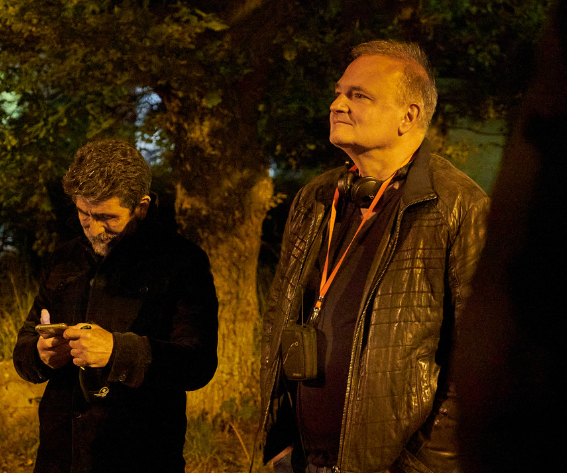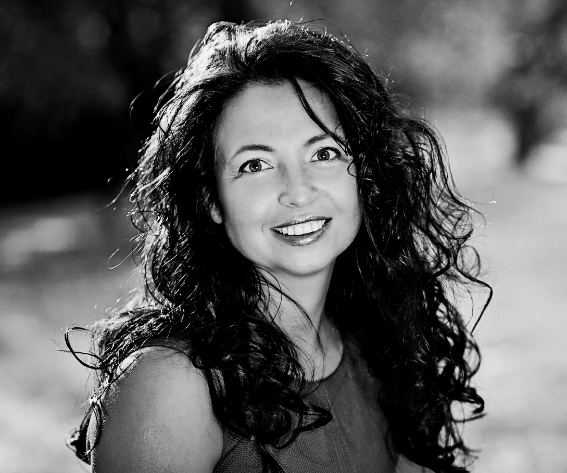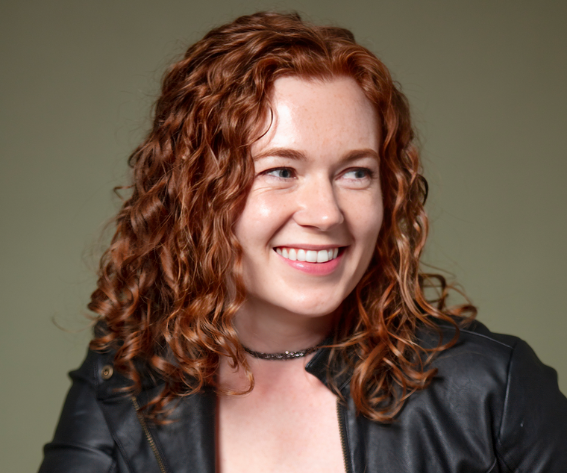The first month of the year has come and gone. Whether or not it passed quickly depends on the intensity of one’s activity during the initial 31 days of the year. And while January does indeed have the habit of being a slow and uneventful month, we were busy sorting out yet another group of excellent entries. In the end, we decided to award our Film of the Month honour to ‘Crush‘, which means that we stopped for a quick chat with the film’s director, Rebecca Gosnell.
JL: Our congratulations for your win, Rebecca! That’s three awards in the bag from our festival!
Rebecca: Thank you so much! My team and I are really thrilled and thankful to be selected!
JL: You also wrote the screenplay for Crush – where did the idea originate from?
Rebecca: A year ago I stumbled across a post on Reddit written anonymously by a teacher who had been wrongly accused of sexual assault by a teenage girl. The girl had decided to lie about him after he rejected a series of advances she made on him while he was teaching her – and because the girl was such a good actress the majority of people at their school believed her story and the teacher’s entire life was destroyed within a matter of days.
It was such a shocking thing to read and a terrifying situation to imagine being a part of – it really could happen to anyone. Instantly I was inspired to create a film based in part on that true story. At first I thought it would be interesting to explore the experience of the teacher having his life turned upside down through his good intentions, but after writing a series of scripts and experimenting with the storyline, I felt it could be even stronger if we got a glimpse into the life of the teenage girl herself – exploring the psychology behind why a person could be pushed to ruin another person’s life.
JL: Your film is a dark and very telling story that somewhat reminded us of Henry Alex Rubin’s Disconnect (2012). What were your sources of inspiration for the story?
Rebecca: The main film myself and my team looked at was The Hunt (2012) – which is a brilliant and powerful film that explores the life of a man who is accused of being a paedophile. I also looked at Gone Girl (2014) – another shocking film that shows how a person’s life can be torn apart by a series of complex lies.
JL: What is, in your opinion, the main takeaway message of Crush?
Rebecca: The main message of CRUSH is that every person hides a hidden darkness and we can never truly know someone – and also that teenagers are terrifying! I don’t believe in the idea that people are born monsters, moreso that a combination of relationships with others, societal pressures, and life events can lead people down the wrong path. I hope that when people watch CRUSH they can empathise with both of the main characters – the perpetrator and the victim – and that they can understand how both of them ended up in such a difficult situation.
JL: Tiger Cohen Towell gave a wonderful performance as Sarah, which earned her our Actress of the Month award. Did you write Sarah’s part with her in mind, or was she cast after the completion of the screenplay?
Rebecca: Tiger is the best actress I’ve worked with so far – she is an incredible talent and a joy to work with. I cast her about a month before shooting – the moment I saw her headshot I had a gut feeling she would be ideal for the role – and it turned out I was correct!
JL: You also won our Director of the Month award – congratulations! What past projects have you worked on as a director and what have you learned from them?
Rebecca: I’ve been directing shorts and music videos for the past 5 years – although I’d say it’s only in the past 2 years since studying writing and directing at university and finding a strong team there that I’ve started making films that I’m actually proud of! Every film brings its own set of challenges, mistakes, and successes – but overall through making my films I have learned the importance of a strong script, the importance of casting, and most of all the importance of a director’s attitude on set, and how their mood / stress levels affects everyone else on the production.
JL: What was the most challenging aspect in the making of Crush?
Rebecca: The most challenging part of making CRUSH was my own personal time-management and keeping an eye on my stress levels – my team and I created this film outside of university, which meant that all of the pre-production took place at the same time as a number of essays and projects as part of my degree. It was difficult at times to juggle everything and definitely wore me down more than once.
JL: We noticed that you’re crowdfunding a new project, which you will direct – Gloria. What is it about?
Rebecca: GLORIA is a social realist drama that follows an elderly widow as she becomes a prisoner in her own home after an emotionally disturbed teenage girl moves in opposite her. The same team that helped me create CRUSH are also working on this project, and we are all really excited to bring it to life in the next few months.
Here’s a link to our facebook page if anyone would like to keep up with our production process:
https://www.facebook.com/
JL: What is a key aspect that you learned while making Crush and you’re implementing in Gloria, as well as any other future projects?
Rebecca: I think CRUSH definitely made me realise that I want to continue to make social realist dramas – and also films focusing on female-led stories and the darker side of human nature. It’s a great feeling when you finally realise what your creative path should be moving forwards, and recognising your own personal style and what sets you apart from other writers and directors.
The main thing I learned during the production process for CRUSH was the importance of having a test shoot before production begins – we didn’t have time to do it for this project, and it definitely slowed things down and caused confusion when filming. For GLORIA I’ve made sure that there is enough time set aside to create storyboards, animatics, and have a number of test shoots far in advance – so hopefully everything should run smoothly and I can fully focus on helping my actresses craft their best performances on set once we start filming at the end of April.
JL: Rebecca, thank you for your time! We wish you the best of luck for your future projects, and we look forward to hopefully see them in our festival!
Rebecca: Thank you!








Leave a reply